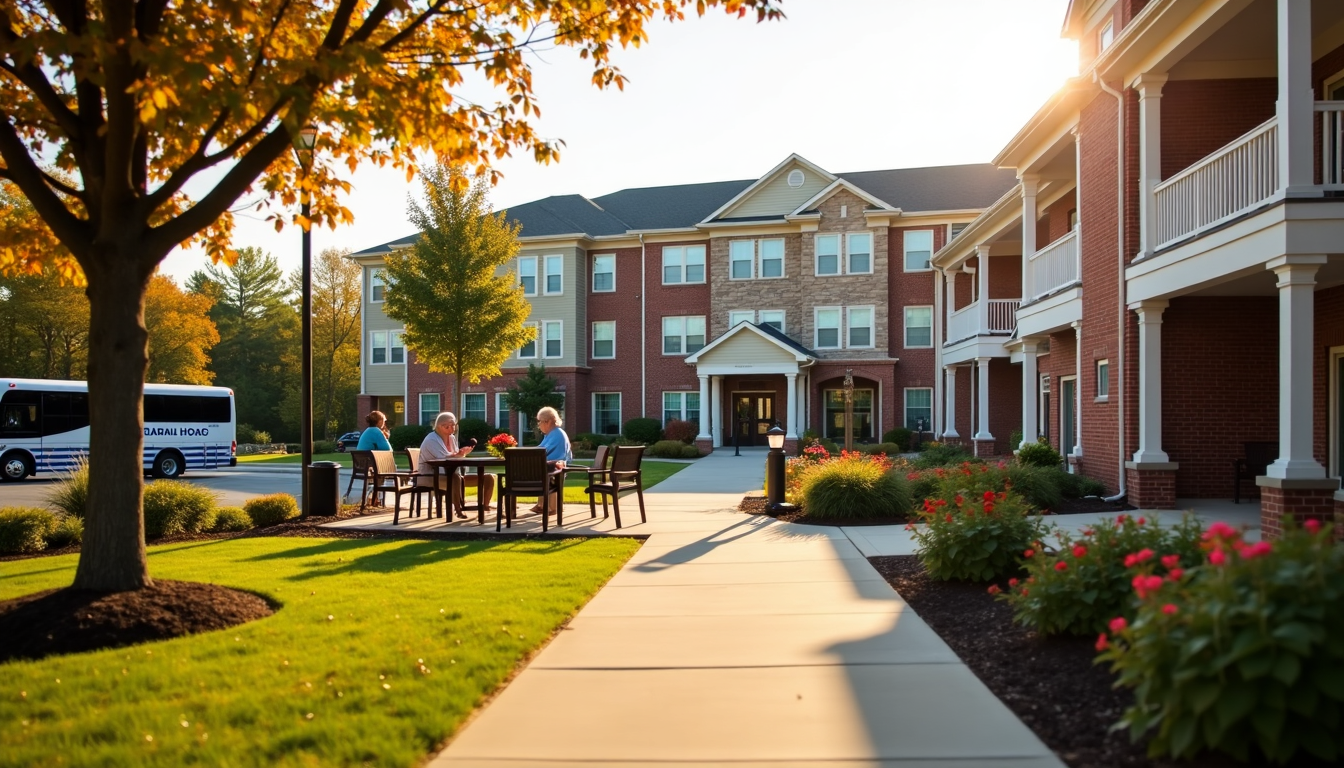Recent federal data shows 5.2 million American seniors living below the poverty line. One-third of senior citizens cannot cover basic monthly expenses, forcing choices between medication and utility bills.
Federal and state grant programs offer financial support for aging Americans without repayment requirements. The funding covers essential needs ranging from home repairs to medical equipment. Senior assistance programs include specialized grants for home modifications, healthcare costs, and daily living expenses.
Grant programs operate through multiple channels including federal agencies, state organizations, and private foundations. The application process follows specific guidelines for each funding source. This guide examines available programs, eligibility requirements, and application procedures.
The following sections detail legitimate funding sources, document requirements, and submission protocols. Seniors seeking financial assistance will find step-by-step information for accessing these established support programs.
Senior Grant Program Fundamentals
The ElderCare Trust Fund awarded $450,000 to 35 non-profit organizations since 1992, helping seniors maintain independent living. These financial assistance programs provide support without requiring repayment.
The Section 504 Home Repair program offers lifetime grants up to $10,000 for elderly homeowners to address safety hazards. Federal data shows multiple grant categories supporting senior citizens:
- Federal Programs: Housing assistance and safety modification grants through HUD and USDA
- State Support: Services distributed through Area Agencies on Aging (AAA) across 10 local regions
- Private Foundations: AARP Foundation targets 22 states with high senior poverty rates
- Local Programs: Transportation and meal delivery assistance
- Specialized Grants: Home modification and healthcare support funding
Federal records show specific eligibility requirements for accessing these funds. The Section 504 program requires recipients to be 62 or older, while most other programs set the minimum age at 60. Additional criteria include:
- Income verification showing financial need
- Proof of residence in eligible areas
- Priority consideration for:
- Minority seniors with limited English proficiency
- Rural residents
- Low-income applicants
The Older Americans Act provides broad eligibility for seniors 60 and older, though funding remains limited. The Administration for Community Living (ACL) oversees program distribution through state and local organizations rather than providing direct grants to individuals.
State agencies report varying requirements between programs. Senior assistance organizations recommend checking specific eligibility criteria when applying for multiple funding sources.
Grant Application Documentation Requirements
Federal grant agencies report specific documentation requirements for senior assistance programs. The System for Award Management (SAM.gov) requires applicants to submit multiple identification forms and financial records.
Required documents for federal grant applications include:
- State-issued identification or driver’s license
- Birth certificate and Social Security card
- Marriage or divorce documentation
- Military service records for veteran programs
- Medical history and insurance verification
- Current medication list and physician information
- Emergency contacts
- Power of attorney papers (if applicable)
The Federal Financial Report (FFR) guidelines specify organization requirements for financial records. Grant applicants must provide:
- Bank statements showing all accounts
- Five years of tax returns
- Investment portfolio documentation
- Insurance policy information
- Property ownership records
Federal grant programs require exact matching of personal information across all submitted documents. Applications must include:
Federal Registration SAM.gov registration and Taxpayer Identification Number verification
Medical Documentation Medicare/Medicaid enrollment proof and long-term care policies
Income Verification
- Monthly income reports
- Pension statements
- Social Security documentation
- Recent tax filings
Grant agencies recommend storing documents in fireproof safes with digital backup copies. The National Archives provides guidelines for securing sensitive application materials during the submission process.
Senior Grant Funding Sources
The U.S. Department of Housing and Urban Development (HUD) awarded $15 million to support low-income senior housing, benefiting 1,900 senior families. Federal agencies provide substantial funding through multiple programs, including USDA’s Section 504 program offering $10,000 grants for elderly homeowners.
Federal grant resources include:
- Benefits.gov database for assistance programs
- Grants.gov central application portal
- Medicare.gov healthcare support
- SSA.gov benefit information
- HUD.gov housing programs
The AARP Foundation targets 22 states with high senior poverty rates. Private foundations offer varying support levels:
| Foundation Type | Focus Areas | Typical Grant Range |
|---|---|---|
| National | Housing, Healthcare | $5,000 – $50,000 |
| Regional | Transportation, Meals | $1,000 – $10,000 |
| Community | Emergency Assistance | $500 – $5,000 |
Local programs provide direct assistance through established networks. The ElderCare Trust Fund distributed $450,000 to 35 non-profit organizations supporting senior independence. Area Agencies on Aging coordinate local services including:
- Financial assistance programs
- Home modification funding
- Utility payment support
- Transportation services
- Meal delivery options
Local Area Agencies on Aging match seniors with suitable programs. Federal records show shorter waiting periods and flexible requirements for local assistance compared to national programs.
Senior assistance coordinators report many applicants qualify for multiple funding sources. Grant agencies recommend submitting applications to several programs simultaneously.
Grant Application Submission Protocols
Federal grant agencies require online submissions through Grants.gov. The registration process takes several days to complete. State Department of Aging portals handle applications for regional programs.
Online submission requirements include:
- DUNS number and SAM registration
- Electronic application forms
- Digital document uploads
- Error review completion
- Submission tracking numbers
The Administration for Community Living (ACL) maintains specific guidelines for paper applications. Paper submission protocols require:
- Standard 8.5″ x 11″ paper format
- Precise margin and font specifications
- Blue ink signatures
- Document copies
- Certified mail tracking
The System for Award Management (SAM) specifies required documentation for grant applications. Application packages must include:
Organization Documents:
- IRS Determination Letter (organizational applicants)
- 90-day financial statements
- Current operating budget
- Board member list (organizational applicants)
- Support letters
Grant agencies send confirmation emails and validation notices for online submissions. Records show successful applications maintain communication logs and document copies throughout the process.
Technical review systems include error-checking functions for application validation. Grant coordinators recommend submitting paper applications two weeks before deadlines, allowing time for postal delays and potential revisions.
Grant Scam Prevention Protocols
Federal investigators report billions in annual losses from scammers targeting elderly Americans seeking financial assistance. The Federal Trade Commission (FTC) documented rising cases of fraudulent grant offers targeting seniors seeking elderly care.
Recent fraud reports show common deception tactics:
- Unsolicited “free” government grant offers
- Demands for application fees
- Guaranteed approval promises
- High-pressure sales tactics
- Requests for bank details
- Social media grant solicitations
- Unrequested grant selection notices
Grant agencies distinguish legitimate programs from scams through specific markers:
| Legitimate Programs | Fraudulent Schemes |
|---|---|
| Formal application process | Instant approval claims |
| No application fees | Processing fee requirements |
| Official .gov websites | Commercial web domains |
| Response to submissions | Unsolicited contact |
| Secure information channels | Phone/email data requests |
The FTC established reporting procedures for suspicious grant offers. Fraud prevention protocols require:
Evidence Collection
- Communication records
- Contact information
- Payment documentation
Reporting Channels
- FTC Helpline: 1-877-FTC-HELP (1-877-382-4357)
- ReportFraud.ftc.gov portal
- HHS Fraud Hotline: 1-800-447-8477
Government agencies never initiate grant contact, charge application fees, request gift cards, or solicit personal data through social media.
Banking regulators advise immediate fraud reporting to financial institutions if money transfers occur. Elder abuse statistics show financial exploitation leading senior victimization cases.
Federal grant administrators require verification through official .gov domains. Senior protection agencies emphasize prompt reporting of suspicious grant activities.
Grant Application Status Management
Federal grant agencies track applications through multiple review stages. Grants.gov displays application progress markers:
| Status | Definition |
|---|---|
| Receiving | <citation index=”21″ link=”https://apply07.grants.gov/help/html/help/Applicants/CheckApplicationStatus/CheckApplicationStatus.htm” similar_text=”## Application Statuses The following are descriptions of the application statuses used to describe the progression of an application after submission through the Grants.gov system. Status |
| Validated | Initial verification complete |
| Agency Review | <citation index=”21″ link=”https://apply07.grants.gov/help/html/help/Applicants/CheckApplicationStatus/CheckApplicationStatus.htm” similar_text=”## Application Statuses The following are descriptions of the application statuses used to describe the progression of an application after submission through the Grants.gov system. Status |
| Tracking Number | System status confirmation |
Grant applicants monitor submission status through Grants.gov portal access. Agency contact becomes necessary after application download completion.
Technical review panels request additional documentation during evaluation. Grant officers require:
- Specific document submissions
- Deadline compliance
- Communication records
- Receipt verification
Expert evaluators rank applications using standardized criteria. Review panels provide detailed feedback on application strengths and weaknesses.
Denied applications qualify for appeal processes. Federal guidelines specify appeal timelines:
- 10-day initial appeal window
- 21-day feedback period
- 21-day formal appeal deadline
Appeal procedures follow strict protocols:
Documentation Requirements
- Grant Officer explanation request within 10 days
- Written feedback review
- Administrative Law Judge submission
Missing the 21-day filing deadline voids hearing rights. The Administrative Law Judge (ALJ) issues decisions within 90 days of record closure.
Grant agencies maintain separate appeal procedures for specialized programs. The Administrative Review Board accepts review petitions within 21 days of decisions. Board determinations require 180-day completion.
Department funding decisions continue during appeals. Grant coordinators recommend pursuing alternative funding sources throughout appeal processes.
Senior Grant Program Access Summary
Federal records show millions of seniors receiving grant assistance annually through established support programs. Grant agencies report successful applications require comprehensive documentation, organized submission processes, and careful attention to program requirements.
The Administration for Community Living coordinates multiple funding channels:
- Area Agency on Aging local resources
- Federal grant programs
- State assistance initiatives
- Private foundation support
Grant administrators emphasize systematic application approaches:
- Document collection and verification
- Organized submission procedures
- Communication records maintenance
- Multiple program applications
Senior assistance coordinators report improved outcomes through local Agency on Aging partnerships. Federal data shows successful applicants typically pursue multiple funding sources while maintaining detailed application records.
The National Council on Aging documents significant quality-of-life improvements for seniors accessing grant support. Grant agencies continue expanding program accessibility through streamlined application processes and coordinated resource networks.
FAQs
Q1. What types of grants are available for elderly care? There are several types of grants available for elderly care, including federal grants, state-level support, private foundation grants, community-based programs, and special purpose grants. These can cover various needs such as home repairs, healthcare support, and services to help seniors maintain independence.
Q2. How can seniors prepare for the grant application process? To prepare for the grant application process, seniors should gather essential documents like identification, birth certificate, financial records, and medical information. It’s important to organize bank statements, tax returns, and proof of income. Keep all documents secure and make digital copies for easy access during the application.
Q3. Where can seniors find legitimate grant opportunities? Seniors can find legitimate grant opportunities through government resources like Benefits.gov and Grants.gov, private foundation databases, and local community programs. Area Agencies on Aging are excellent starting points for finding local assistance and connecting with multiple programs.
Q4. How can seniors avoid grant scams? To avoid grant scams, seniors should be wary of unsolicited offers, requests for upfront fees, and promises of guaranteed approval. Legitimate grants never charge fees and require formal applications. Always verify opportunities through official .gov websites and report suspicious activity to the Federal Trade Commission.
Q5. What should seniors do if their grant application is denied? If a grant application is denied, seniors have the right to appeal the decision. They should request an explanation from the Grant Officer within 10 days of notification, review the feedback, and file a formal appeal if warranted. It’s important to adhere to specific timelines and requirements during the appeal process.












